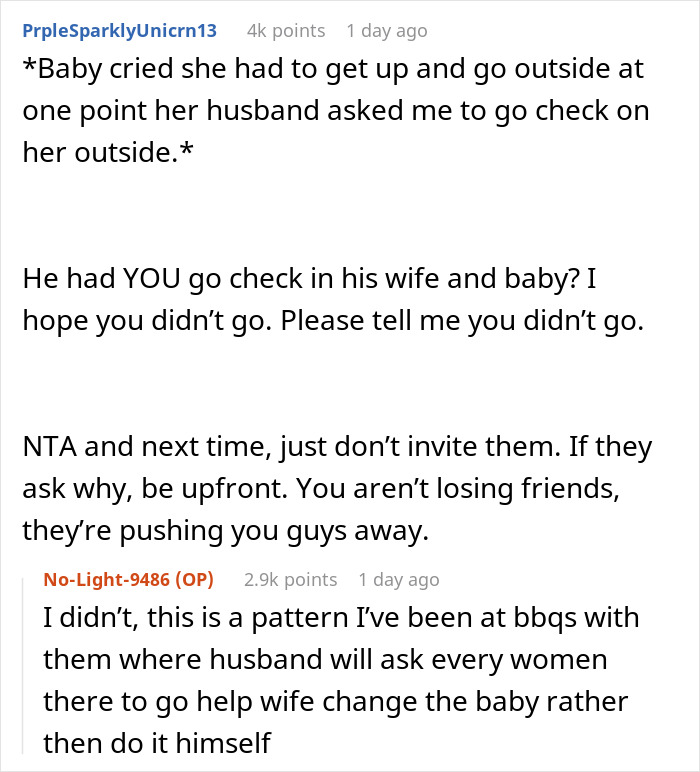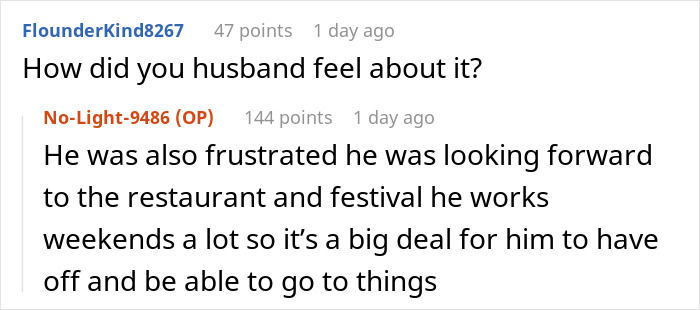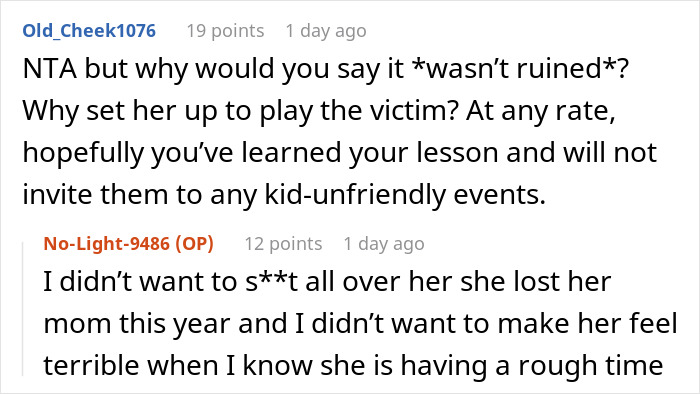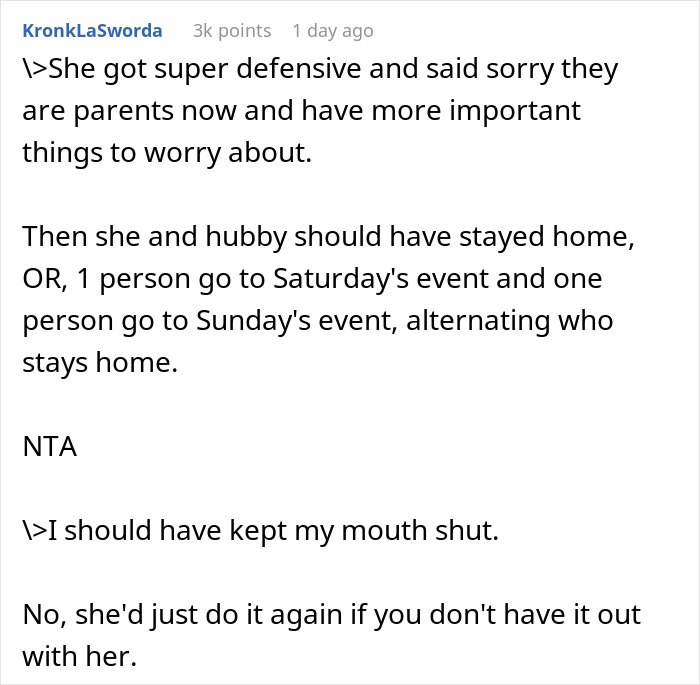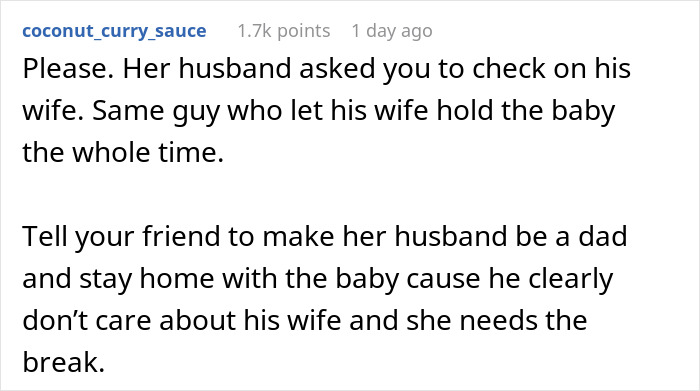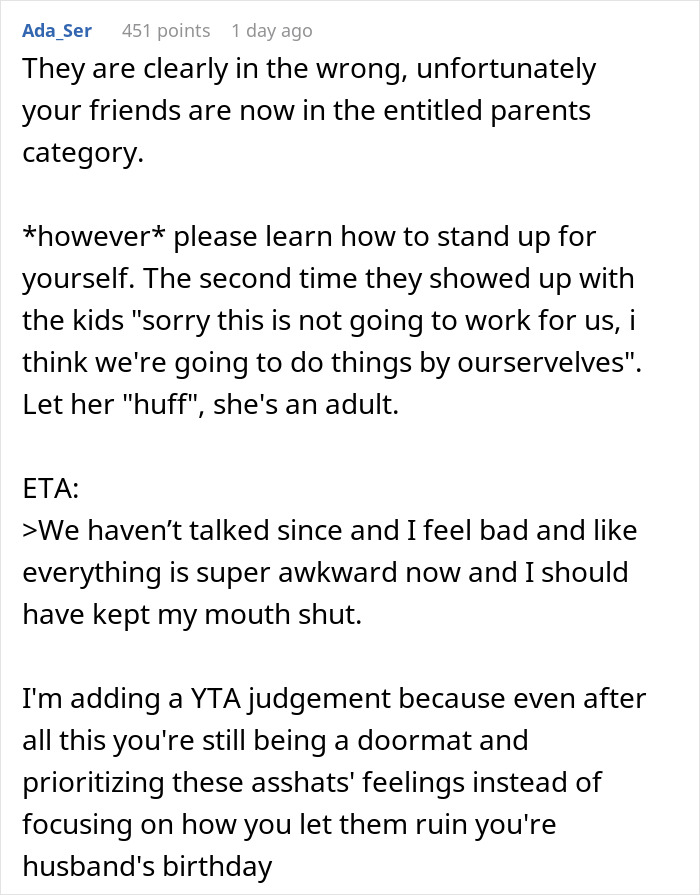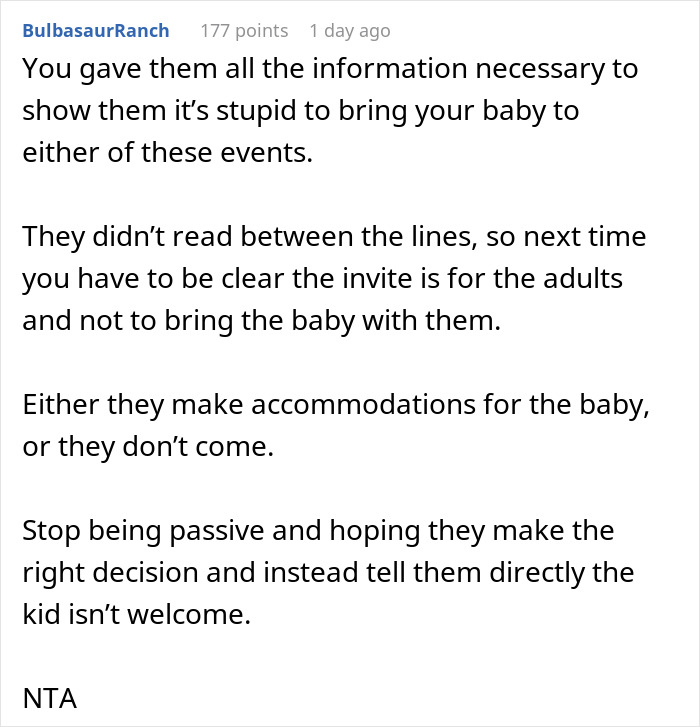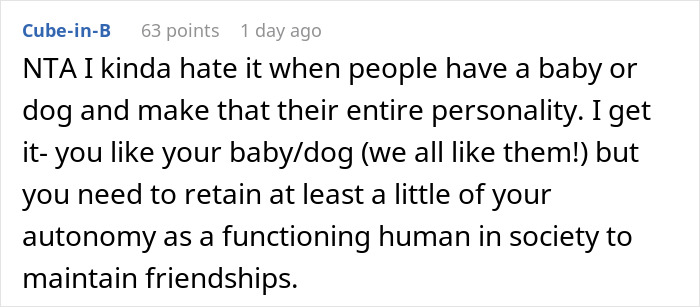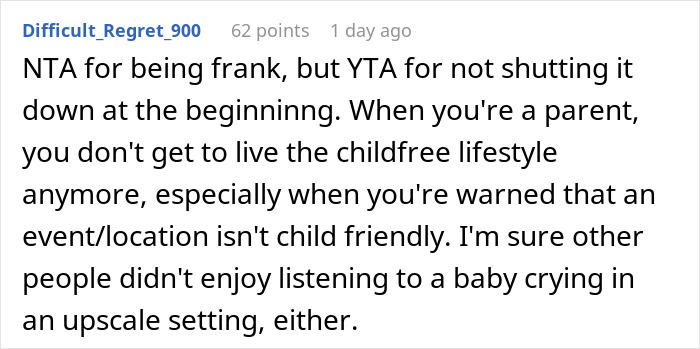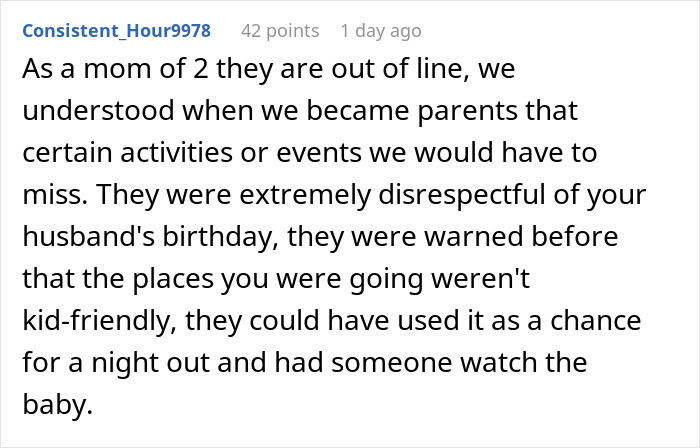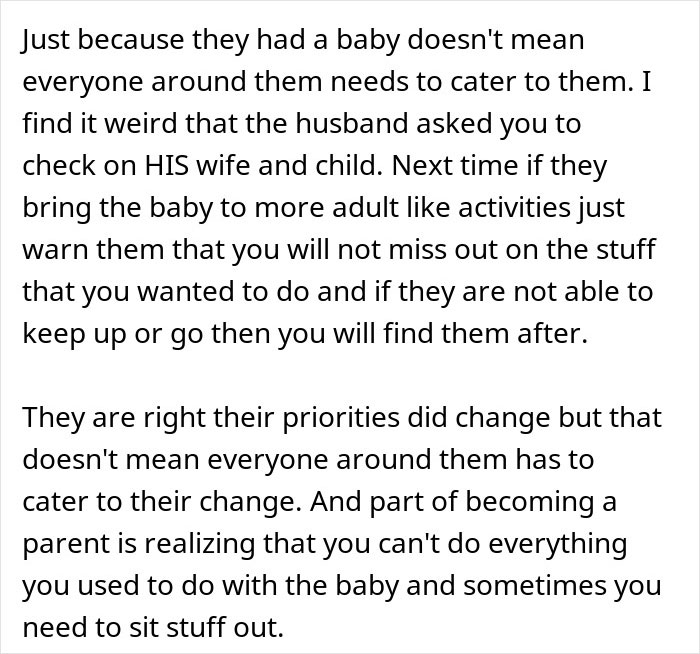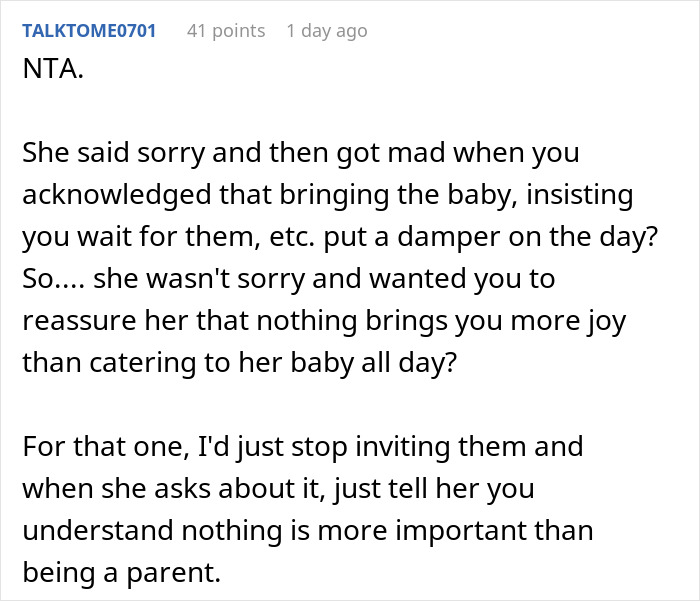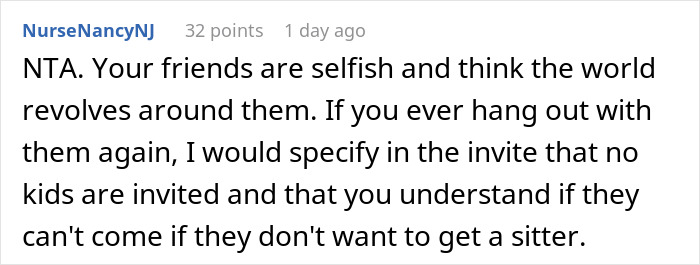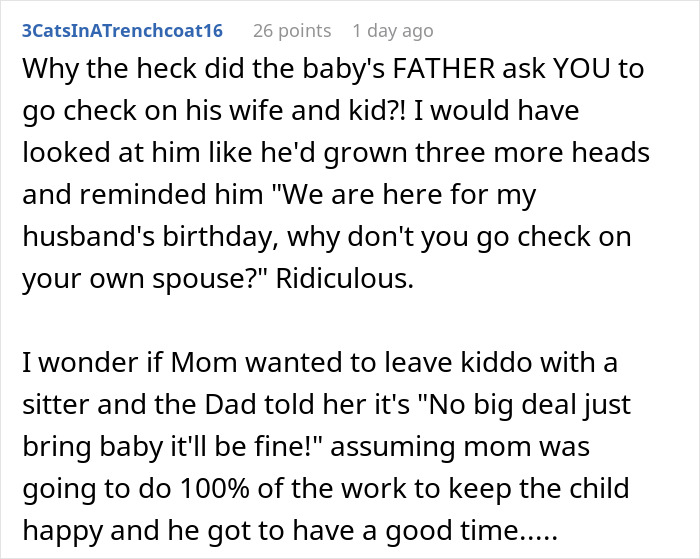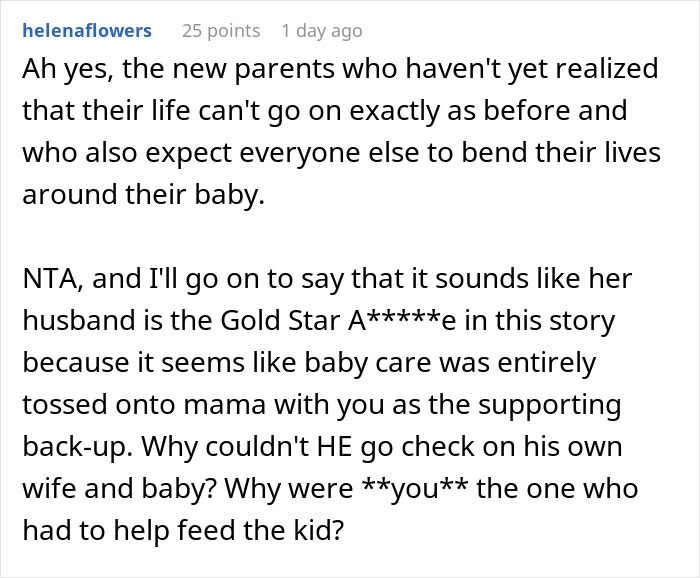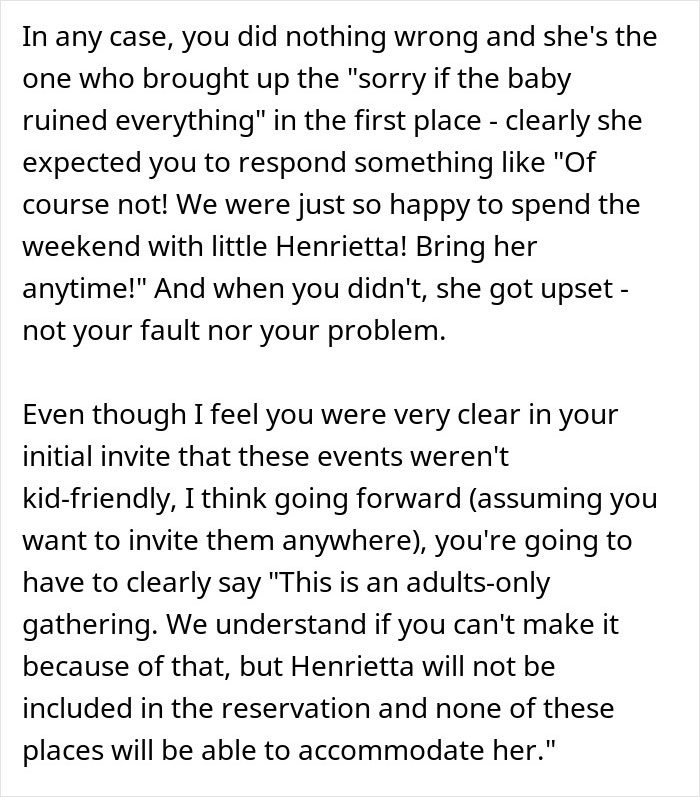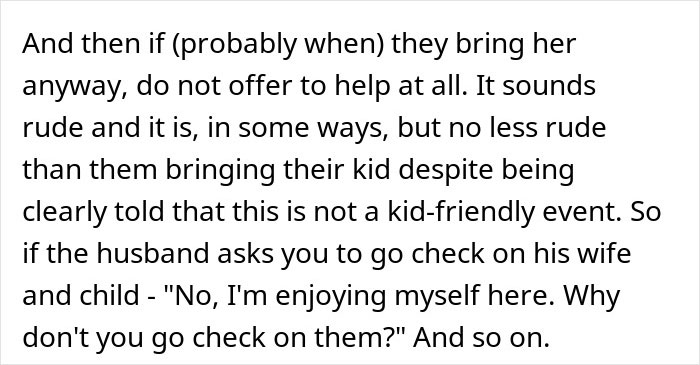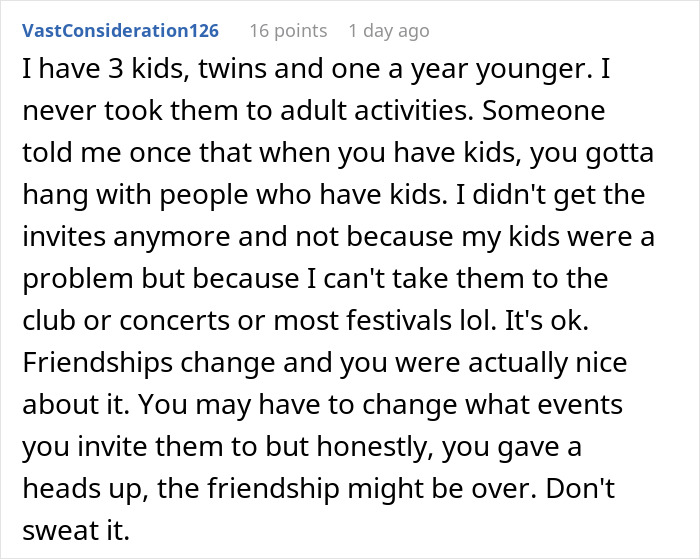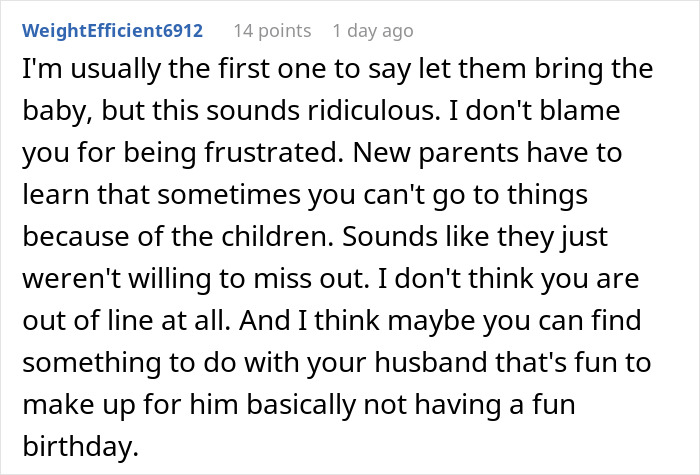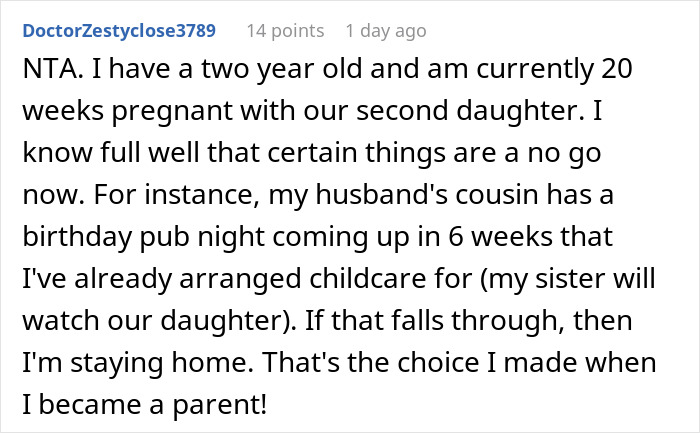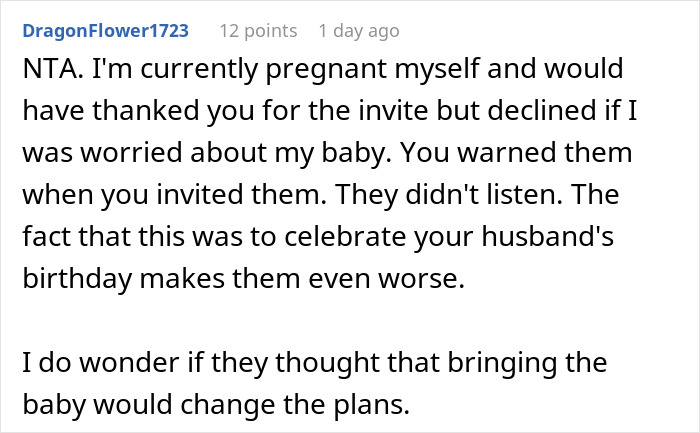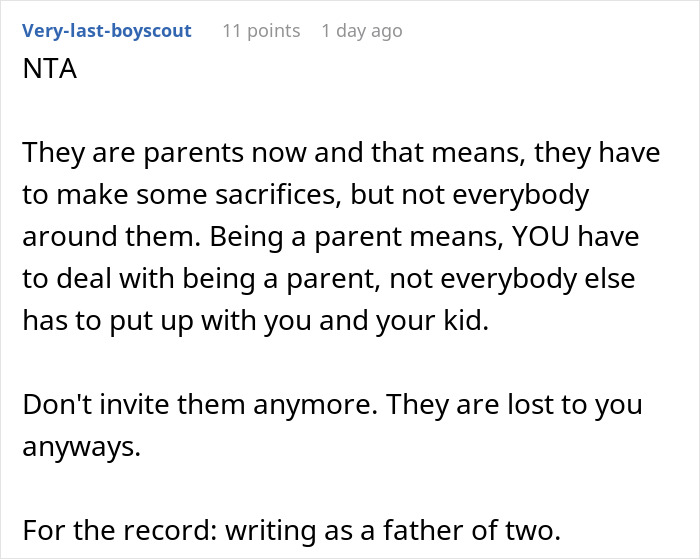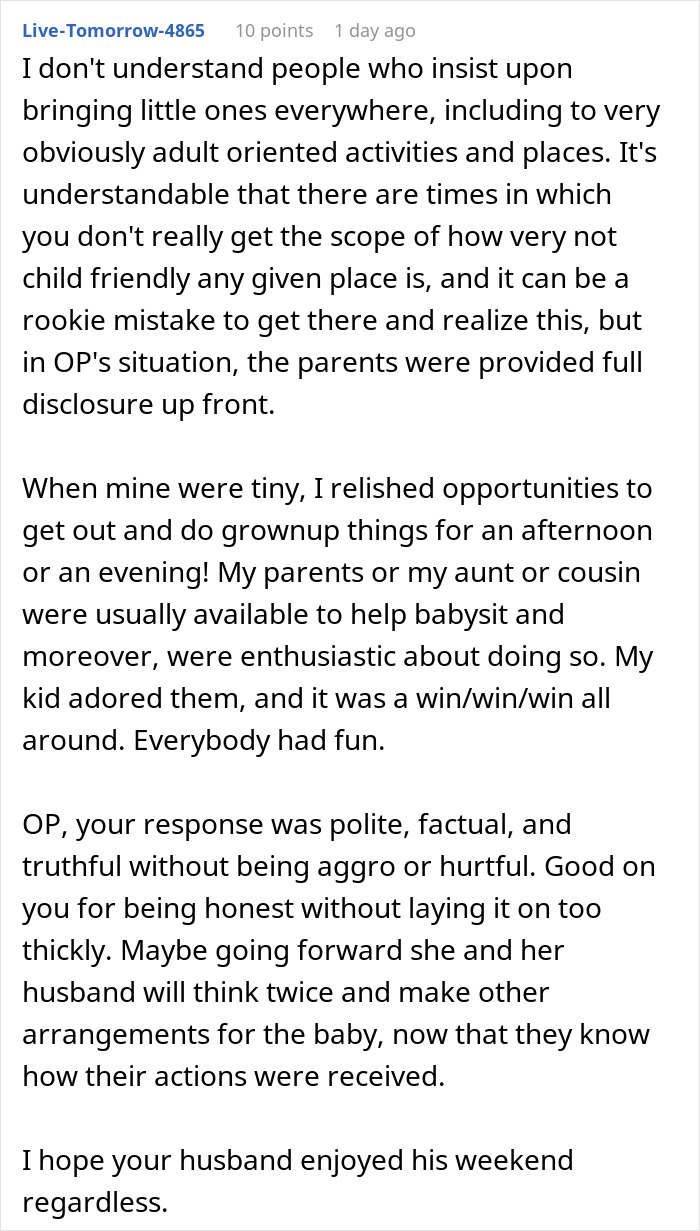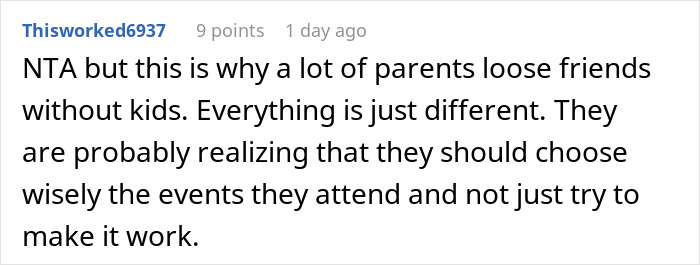After you become a parent, certain things just might be off the books for a while. Parties, birthdays, even weddings – you might have to miss them if you can’t find adequate childcare. Recent research shows that an average parent stresses about childcare six days a month.
But what do you do if there’s a friend’s birthday weekend you really want to attend but can’t find someone who will take care of your baby? This couple decided to take their baby to a non-baby-friendly dinner and outdoor festival. And when their friends admitted that it kind of ruined the vibe, immediate drama ensued.
A couple brought their baby to a friend’s birthday weekend that didn’t have any baby-friendly activities

Image credits: Getty Images (not the actual photo)
After friends confronted them for spoiling the birthday, they became defensive
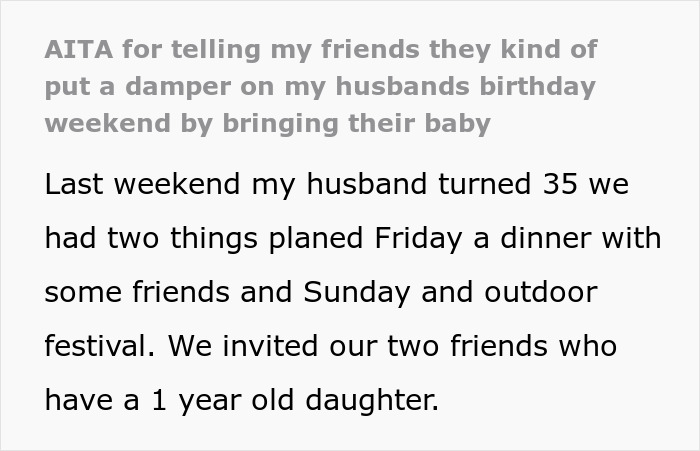

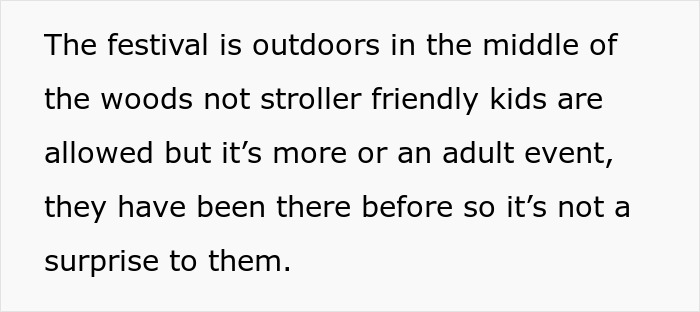
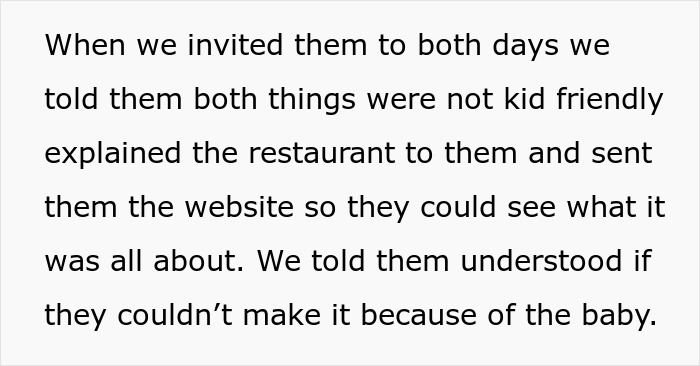
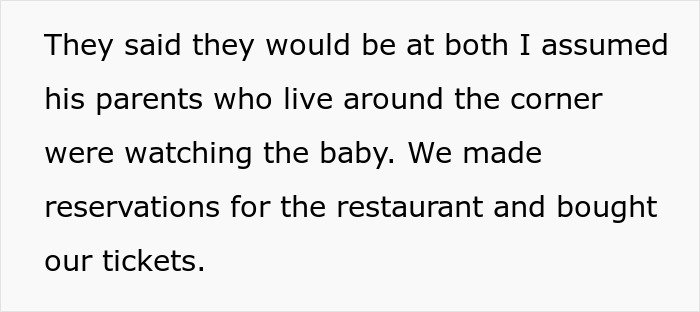
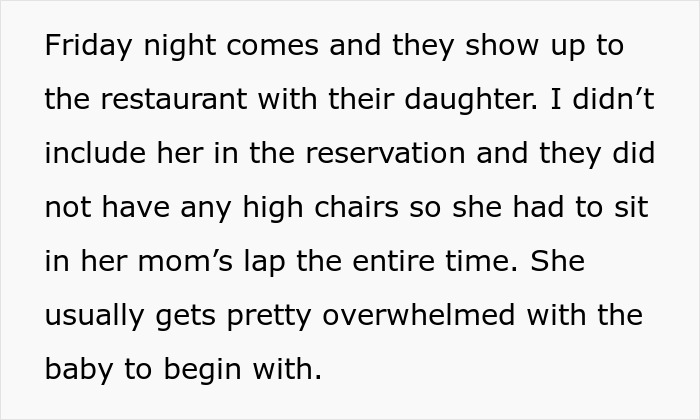
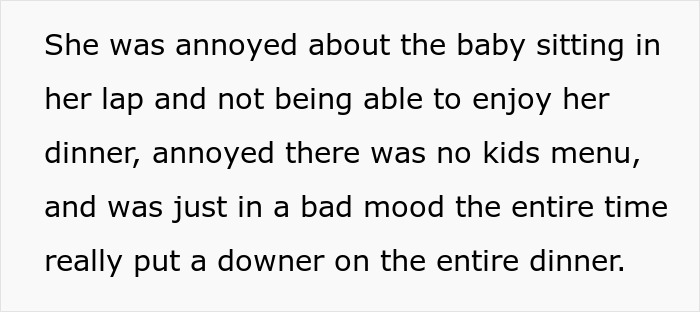


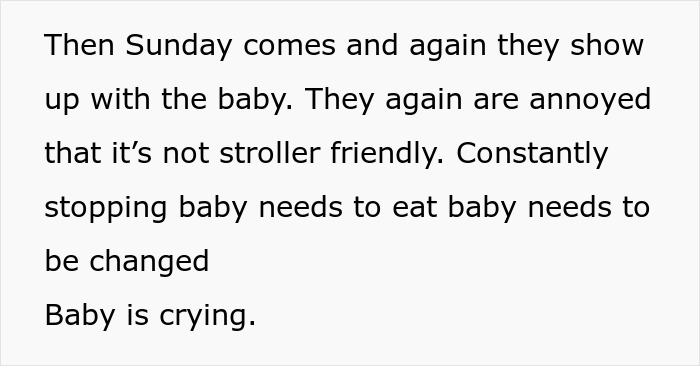
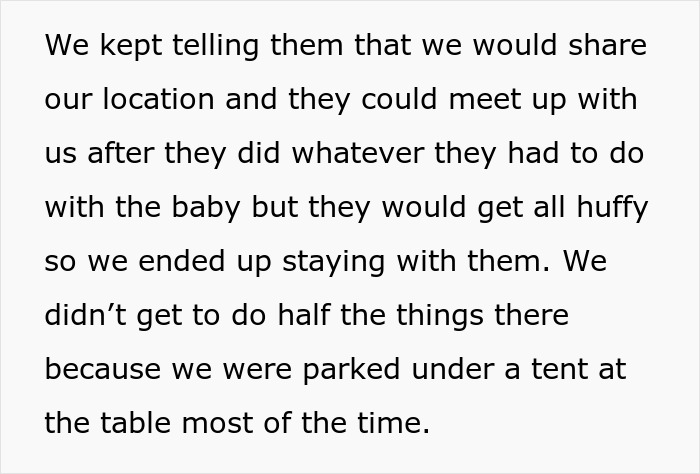

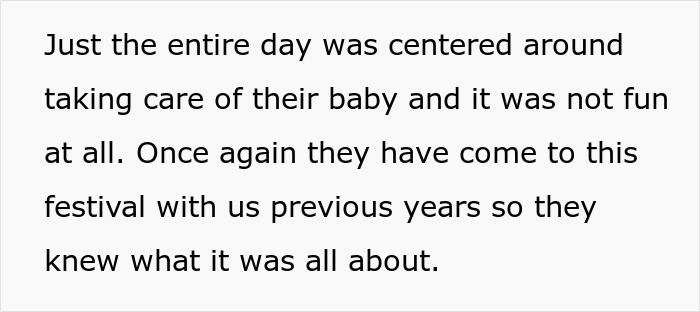

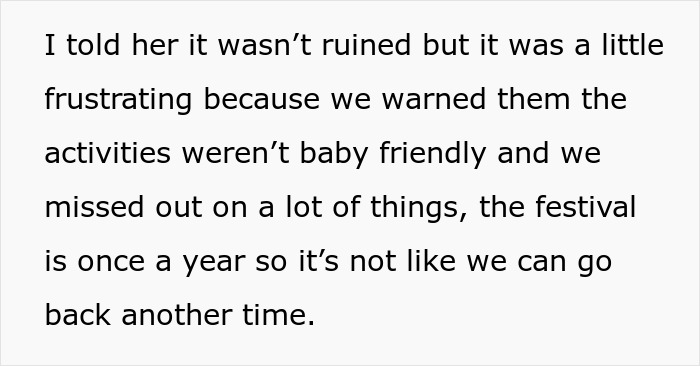

Image credits: Getty Images (not the actual photo)
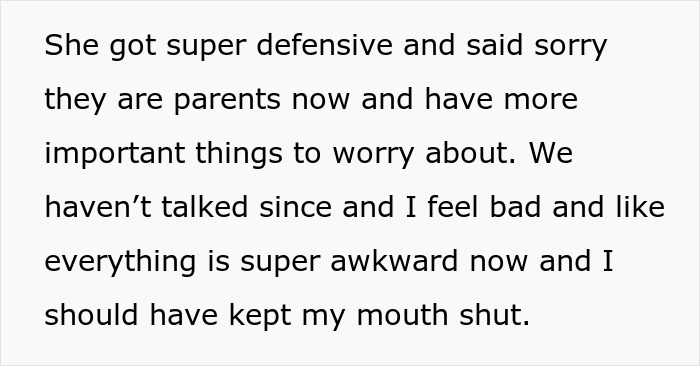
Image source: No-Light-9486
Friends need to communicate clearly instead of expecting each other to “get the message”

Image credits: Vitaly Gariev (not the actual photo)
Some people just prefer functions and parties without kids. When it comes to weddings, for example, 79.5% of couples would prefer to have child-free weddings. Yet excluding friends or their children from get-togethers can be pretty upsetting for the parents, as they may feel it’s unfair. Even when there are no children-friendly activities planned.
The biggest question is then how friends should communicate these issues to each other clearly. As some commenters already mentioned, the couple may have felt they provided all the information for the parents to make the right decision and not bring their baby.
But they still could’ve said it straight and not expected the friends to read between the lines. “Stop being passive and hoping they make the right decision and instead tell them directly the kid isn’t welcome,” commenter u/BulbasaurRanch wrote.
The parents, on their part, could’ve been honest about why they had to bring the baby: perhaps their childcare plans fell through, maybe they’re in a tough financial spot at the moment and can’t hire a nanny.
It’s cliché, but it’s almost always true: communication solves and helps avoid misunderstandings and conflicts like these. Friends with children, after all, have different needs. As Philip Galanes advised in his Social Q’s section of The New York Times to a reader who wanted to throw a child-free dinner party, look for compromises.
He suggested saying something like, “My spouse and I would love to have you over for dinner. We’re not equipped to handle kids, though. So, if you’re comfortable hiring a babysitter, we can do it at our place. Or we can all meet up for a picnic in the park or for a short hike. What works for you?”
Most importantly, he wrote, “don’t let the forum stand in the way of what’s important here: building closer relationships.”
Here are four reasons why friends grow apart after some of them have children
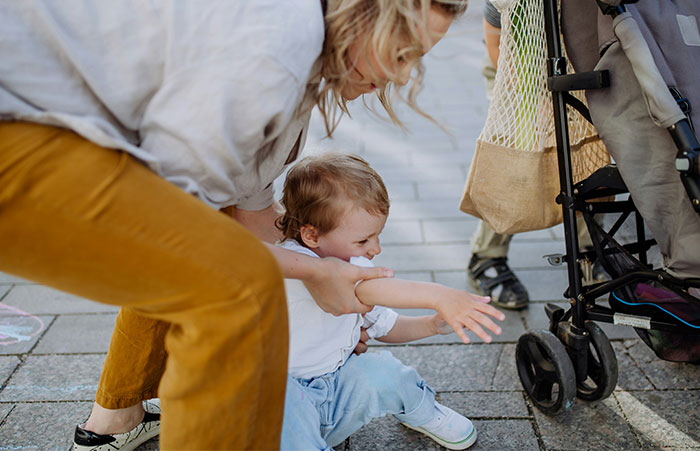
Image credits: Getty Images (not the actual photo)
This story illustrates an interesting phenomenon: as our friends create families and have children, we feel like we’re becoming distant from them. And it’s kind of true: in a 2015 Pew survey, 53% of parents said they feel like they don’t spend enough time with friends.
Having kids indeed causes changes in our social networks. A 2017 Dutch study found that the strength and quality of friendships decrease after people have kids. The worst period is when the kids are around three years old because that’s when the children need their parents’ time and energy the most.
NPR tackled this topic recently and found that there are four main reasons why friendships end after one of the friends has kids.
- Parents assume childless friends don’t want to hang out. It’s true that our interests shift once we have children. But that doesn’t mean that friends no longer have things to talk about. Even if the friend doesn’t want to go to a child’s birthday party, at least give them the chance to say “no.”
- Conversations can be harder. Parents’ priorities are different: they worry about childcare, school, after-school activities, and so on. These conversation topics might make child-free friends feel excluded. And it works vice versa: parents might not be aware of the new, cool restaurant that just opened downtown. Experts advise choosing conversation topics about something that more people have in common.
- We expect the friendship to remain the same. Time flies, people change, and hangouts begin to look different too. It might be harder to plan spending time together. Writer Mariah Maddox told NPR that not all social gatherings need to be dinner parties. Maddox herself started “inviting a friend over and going for a walk around the neighborhood with my child in his stroller.”
- Friends don’t like hard conversations. Situations like the one in this story, where an open conversation might’ve solved everything, happen seldom. Culture writer Anne Helen Petersen recalled to NPR how she discovered friends had excluded her from a chat group. But, instead of acting passive-aggressively, she confronted them, and the friends were able to have a productive conversation.
Still, sometimes talking things out might make it clearer that the friendship is toast. And that’s okay too – nothing in this world lasts forever, and some relationships can’t evolve past a certain point, however heartbreaking that is.
“Next time, just don’t invite them,” people gave their verdict, siding with the friends
